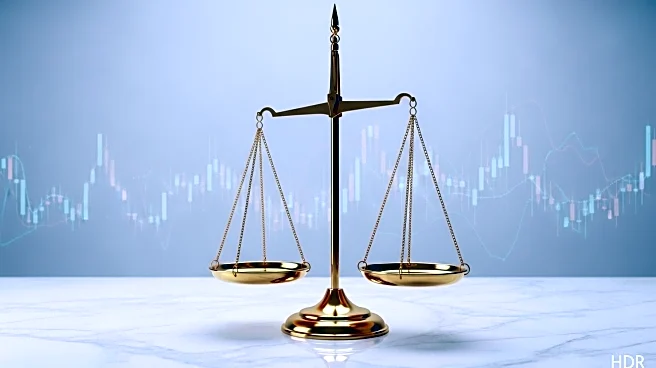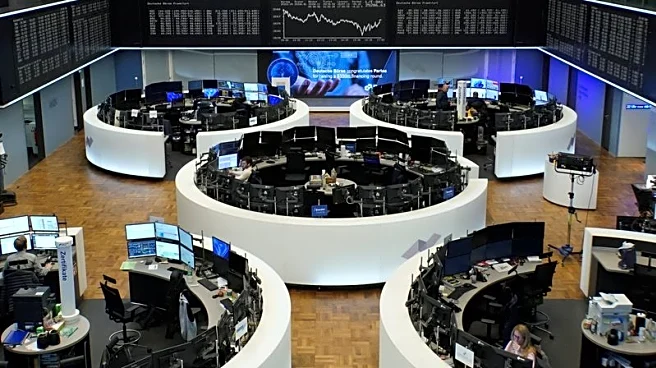What is the story about?
What's Happening?
Federal Reserve Governor Michael Barr has emphasized the need for caution regarding further interest rate cuts due to inflation risks. In a speech delivered to the Economic Club of Minnesota, Barr highlighted the challenging position the Federal Reserve faces, balancing inflation risks with vulnerabilities in the labor market. He supported the recent quarter-of-a-percentage-point reduction in the policy rate but expressed concerns over the Trump administration's tariffs potentially exacerbating inflation. Barr forecasts that the core Personal Consumption Expenditures Price Index could rise above 3% by the end of the year, with headline inflation not expected to reach the 2% target until 2027. This situation presents a significant challenge for the Federal Reserve as it navigates monetary policy decisions.
Why It's Important?
The cautious approach advocated by Barr is significant as it reflects the Federal Reserve's ongoing struggle to manage inflation while supporting economic growth. The potential impact of tariffs on inflation and the labor market could have far-reaching consequences for U.S. economic stability. If inflation persists above the target rate, it could lead to higher costs for consumers and businesses, affecting purchasing power and economic growth. The Federal Reserve's decisions on interest rates are crucial for maintaining economic balance, and Barr's comments suggest a careful consideration of these factors to avoid exacerbating inflationary pressures.
What's Next?
Barr's remarks indicate that the Federal Reserve may need to act decisively if labor market conditions worsen or inflation risks increase. The Federal Open Market Committee (FOMC) could potentially implement more aggressive policy measures to stabilize the economy. Stakeholders, including businesses and policymakers, will be closely monitoring economic indicators and the Federal Reserve's actions to anticipate potential shifts in monetary policy. The ongoing federal government shutdown complicates the availability of official data, making it challenging to assess labor market conditions accurately.
Beyond the Headlines
The broader implications of Barr's cautionary stance highlight the complex interplay between government policies, such as tariffs, and economic indicators like inflation and labor market health. The Federal Reserve's approach to interest rates will be pivotal in shaping economic outcomes, influencing consumer confidence and business investment decisions. The long-term trajectory of inflation could alter consumer expectations, potentially leading to changes in spending behavior and economic growth patterns.















